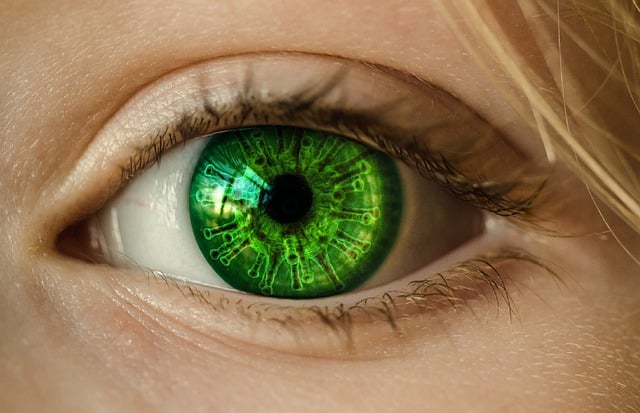
Tips for Preventing Eye Infections
Do you suffer from frequent eye infections? If so, don’t worry; you’re not alone. Eye infections are common and can be caused by various factors such as bacteria, viruses, and allergens. They can result in discomfort, pain, and even vision loss if left untreated.
Fortunately, you can take plenty of steps to prevent eye infections from occurring in the first place. One of the most important steps in preventing eye infections is practicing good hygiene. This includes washing your hands frequently, especially before touching your eyes and avoiding touching your eyes as much as possible.
You should also avoid sharing personal items such as towels, contact lenses, and eye makeup with others. Additionally, it’s essential to maintain a healthy lifestyle by getting enough sleep, eating a balanced diet, and avoiding smoking.
Following these simple tips can significantly reduce your risk of developing an eye infection. You should also visit an eye care professional annually for an eye exam. You can schedule an eye exam with an optometrist close to you by clicking here.
Table of Content
Eye Infection Prevention Tips
Firstly, it’s important to keep your hands clean by washing them regularly with soap and water. This will prevent the transfer of bacteria and viruses from your hands to your eyes. Also, avoid touching your eyes with your hands as much as possible.
Secondly, avoid sharing personal items such as towels, washcloths, and cosmetics. These items can easily transfer bacteria and viruses and lead to eye infections. Additionally, make sure to clean your contact lenses properly and replace them as directed. Failure to do so can result in eye infections caused by bacteria and fungi.
Now that you know some of the important tips for preventing eye infections, let’s move on to the causes and transmission of these infections.
Causes and Transmission
You can easily contract an eye infection by touching your face and rubbing your eyes after being in a public place. Eye infections are often caused by viruses or bacteria that are easily transmitted from person to person through direct or indirect contact, such as shaking hands, touching contaminated surfaces, or sharing personal items like towels or makeup.
In addition, poor hygiene practices, such as not washing your hands frequently or not properly cleaning your contact lenses, can also increase your risk of developing an eye infection. It’s important to be aware of these potential causes and take steps to minimize your risk of contracting an eye infection.
By practicing good hygiene habits, such as washing your hands frequently, avoiding touching your face, and properly cleaning and maintaining your contact lenses, you can reduce your risk of infection.
In the next section, we’ll discuss common symptoms of eye infections and how to detect them early.
Symptoms and Detection
If you’re experiencing discomfort or pain in your eyes, it’s essential to recognize the symptoms of an infection early on. Some of the most common signs of an eye infection include redness, itching, tearing, blurred vision, sensitivity to light, and discharge. If you notice any of these symptoms, it’s important to seek medical attention immediately.
One way to detect an eye infection is to pay attention to any changes in your vision. For example, if you notice that your eyes are becoming increasingly blurry or that you’re having trouble seeing, this could be a sign of an infection. Additionally, if you’re experiencing any discomfort or pain in your eyes, it’s crucial to get it checked out as soon as possible.
Remember, early detection and treatment are key to preventing serious complications and ensuring a speedy recovery.
As you move into the subsequent section about treatment and recovery, it’s important to keep in mind that there are various ways to manage and prevent eye infections. By staying informed and taking the necessary precautions, you can minimize your risk of developing an infection and protect your vision for years to come.
Importance of Regular Eye Care
Maintaining healthy eyes is crucial for a comfortable and enjoyable life, and regular eye care appointments can help ensure that your vision stays clear and your eyes remain healthy. Even if you don’t currently have any eye problems, it’s still important to get your eyes checked regularly.
This is because many eye diseases and conditions, such as glaucoma and cataracts, can develop slowly over time and may not show symptoms until they’re in their advanced stages.
During a regular eye care appointment, your eye doctor will check for any signs of eye disease or problems with your vision. They may also perform tests to check your visual acuity, peripheral vision, and eye muscle movement. If any issues are detected, your eye doctor can work with you to develop a treatment plan to address the problem and prevent it from worsening.
By getting regular eye care, you can help ensure that your eyes stay healthy and your vision stays clear for years to come.
In addition to regular eye care appointments, there are other steps you can take to maintain healthy eyes. This includes eating a healthy diet rich in vitamins and minerals, wearing protective eyewear when doing activities that could put your eyes at risk, and taking breaks from screens to reduce eye strain.
Final Thoughts
Remember, it’s crucial always to practice good hygiene, avoid sharing personal items, and seek medical attention if you suspect an infection.
Additionally, regular eye exams are essential to maintaining good eye health and detecting any potential problems early on.
By following these guidelines and taking care of your eyes, you can prevent eye infections and enjoy clear vision for years to come.


